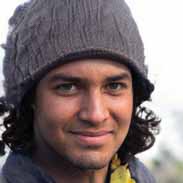Chapter 17- Origins and Evolutions – Flashcards
Unlock all answers in this set
Unlock answers| Stromatolites |
| bacterial communities; earliest forms of life for which we have clear fossil evidence |
| Stromatolites |
| bulbous masses of sedimentary layers of limestone around 3.4 billion years old |
| Fundamental conditions required to develop first cells |
Essential Elements Temperature Range permitting Liquid Water |
| Essential elements |
| compose organic molecules |
| Continual source of energy |
| mainly nuclear fusion with reactions from the sun |
| Temp. range permitting liquid water |
| without this, metabolic reactions would cease |
| Stromatolites |
| 3.4 GYR |
| Microfossils |
| 2.0 GYR |
| Biosignatures |
| biochemical indicators of life |
| Isotope ratios |
| 12C appeared in rocks |
| Biological enzymes |
| lzy; prefer lighter isotope (12C) compared to 13C |
| Cyanobacterial hopanoids |
| steroid-like membrane molecules that are particularly durable; 2.5GYR (ex: 2-methylhopanoid in W. Australian sedimentary rock) |
| Anaerobic oxidation-reduction reactions |
| oxidized molecules were generated by reactions driven by UV light |
| Light driven ion pumps |
| such as bacteriorhodopsin of haloarchaea; could have conducted the first kind of autotrophy |
| Methanogenesis |
| methanogenic archaea combine H2 and CO2 producing CH4 and H2O |
| Humans |
| known as heterotrophs |
| Metabolism of the first cells |
| ALL were anaerobic reactions |
| Models for early life |
| Prebiotic Soup Metabolist Model RNA world |
| Prebiotic Soup |
Model for early life that suggests small organic molecules arise abiotically from simple reduced chemicals sparked by lightning. (Miller) Wrong because no CH4 substrates formed, as well as NH3, so no amino acids were made |
| Metabolist Model |
| A model indicating that self-sustaining abiotic chemical reactions could have formed the basis of cellular metabolism; that the genetic code may have originated from synthesis of an amino acid complexed to a dinucleotide |
| RNA world |
Model that suggest RNA is a better candidate than DNA for the earliest molecule because: -uracil is a precursor for thymine -possesses catalytic properties as ribozymes -RNA ribosome carries out protein synthesis |
| Requirements |
| "No one model of life's origin yet addresses all the ________________ of a living cell." |
| Panspermia |
| life was seeded on earth by meteorites |
| Mechanisms of evolution |
poupulations of organisms diverge from these: random mutations natural selections reductive (degenerative) evolution |
| random mutations |
| chromosome replicates |
| natural selection |
| favors organisms that produce more offspring |
| reductive (degenerative) evolution |
| loss or mutation of DNA encoding unselected traits |
| Molecular clocks |
| temporal information contained in a macromolecular sequence where random mutations happen in each round of replication |
| Small subunit rRNA (SSU rRNA) |
| widely used molecular clock is the gene encoding these |
| rRNA |
| used to make proteins; cant afford mutations (highly conserved) |
| Phylogenetic Tree |
| frequency of differences between homologous sequences can be used to generate this. |
| Phylogenetic Tree |
| estimates the relative amounts of evolutionary divergence between sequences |
| Divergence data |
| can be used to infer the length of time since two species shared a common ancestor |
| Three domains of life |
| bacteria, archaea, and eukarya |
| Carl Woese |
| first used SSU rRNA phylogeny to reveal the existence of the third kind of life domain (archaea) |
| Horizontal gene transfer |
| acquisition of a piece of DNA from another cell |
| Vertical gene transfer |
| transmission of an entire genome from parent to offspring |
| Horizontally |
| Among prokaryotes, DNA is transferred ________ by plasmids, transposable elements and bacteriophages |
| GC/AT ratio |
| Evidence of transfer is a DNA sequence whose _______ differs from the rest of the genome. |
| Monophyletic |
| vast majority of gene transfer is vertical and the lineages are this |
| genomes |
contain two kinds of genes informational genes operational genes |
| informational genes |
| encode products essential for transcription and translation; interact with many cellular components; VERTICAL gene transfer |
| Operational genes |
| encode products that govern metabolism, stress response, and pathogenicity; fuction with relative independence; HORIZONTAL gene transfer |
| Symbiosis |
| intimate association of two unrelated species |
| Types of symbiosis |
| Mutalism and Parasitism |
| Mutualism |
| both partners benefit |
| Parasitism |
| one partner benefits, while the other is harmed |
| Coevolution |
| symbiosis leads to this; where evolution of two species is in response to one another. |
| Leaf-cutter ants |
| cultivate fungal partners; example of microbial symbiosis; when ant gets a parasitic fungus, it grows bacteria that produces an antibotic against it. |
| Endosymbiosis |
occurs when one partner grows within the body of another
|
| Brugia malayi |
| filarial nematode that harbors Wolbachia endosymbionts; its presence is required for the nematode's embryonic development |
| Theory of Endosymbiosis |
| Proposed by Lynn Margulis, this theory states that assimilation of an endosymbiont as mitochondria and chloroplasts played a central role in eukaryotic evolution. ex: mitochondria evolved from an alphaproteobacterium that infected... chloroplasts that evolved from cyanobacteria. |
| Reduction |
| Genomes of mitochondria and chloroplasts both show extreme __________. Evidence that organelles have genomes! |



